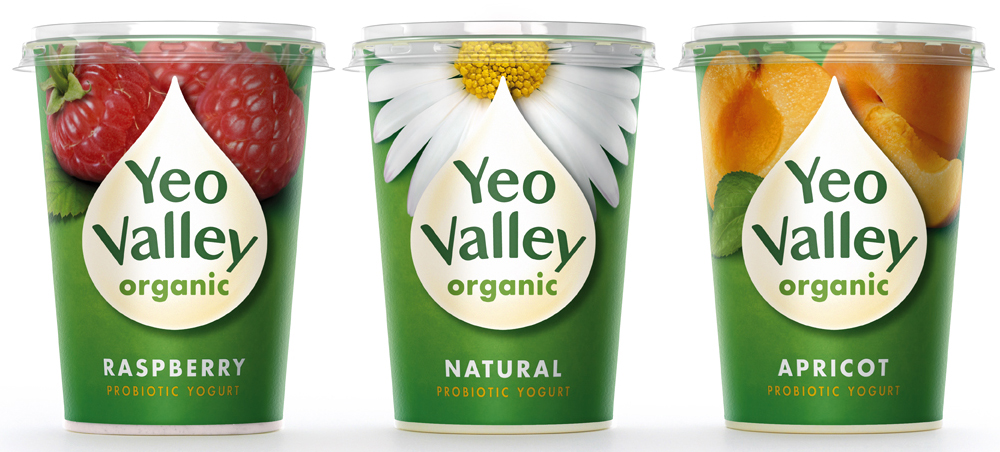 A remarkable story lies behind this week’s OBE for Mary Mead, founder of the spectacularly successful Yeo Valley organic food group. The New Year’s honour recognises her services to sustainable dairy farming and achievement in helping to build Britain’s biggest organic dairy business – but that barely scratches the surface of the remarkable story of Mary and Yeo Valley.
A remarkable story lies behind this week’s OBE for Mary Mead, founder of the spectacularly successful Yeo Valley organic food group. The New Year’s honour recognises her services to sustainable dairy farming and achievement in helping to build Britain’s biggest organic dairy business – but that barely scratches the surface of the remarkable story of Mary and Yeo Valley.
It was October 1961 when Mary, and her late husband Roger, moved to Holt Farm on the edge of Blagdon Lake, just a few miles south of Bristol Airport at the foot of the Mendips.
The dairy farm then had 150 acres and no mains water. Starting with a tea room, making home-made clotted cream and freshly baked scones, the couple used the left over skimmed milk to make the very first batches of Yeo Valley yoghurt.
Today the farm covers more than 1,250 acres producing organic dairy products, beef, lamb and arable feed crops while the Yeo Valley business employs around 1,500 people in its four production centres and is heading rapidly towards an annual turnover of a quarter of a billion pounds.
The company produces Yeo Valley Organic yoghurts at its dairies in Blagdon and Cannington, bottles organic milk purchased from a West Country organic farming co-operative at its Crewkerne dairy and makes luxury desserts and ice cream in Newton Abbott, Devon.
Yeo Valley also produces a range of conventional retailer branded products for most major UK supermarkets. In addition, it has two logistics centres at Highbridge and Axbridge while its head office is in Blagdon.
 The business kicked off in earnest as a result of the increasing influence of what was then the Common Market’s agricultural policies. Roger believed they should do something with their own milk and started experimenting with yoghurt production. The rest, as they say, is history with the business winning three Queen’s Awards in recent years for enterprise and sustainable development.
The business kicked off in earnest as a result of the increasing influence of what was then the Common Market’s agricultural policies. Roger believed they should do something with their own milk and started experimenting with yoghurt production. The rest, as they say, is history with the business winning three Queen’s Awards in recent years for enterprise and sustainable development.
At last month’s ceremony marking its most recent Queen’s Award, Mary spelled out the Yeo Valley philosophy. “We cannot live without food and because land is a finite resource we need to protect it through the use of natural material,” she told Bristol Business News. “As organic farmers this is something that is at the forefront of our business.”
She was named BBC Radio 4 Farmer of the Year and in 2011 was runner up in The RABDF/NMR Gold Cup Competition. She is also involved with The British Friesian Breeders Club and was a council member of The Royal Association of British Dairy Farmers for some years. Mary continues to run the Holt Farm Lakemead herd.
As for the OBE, she said: “I was completely stunned when I heard the news – it was totally unexpected. After 50 years at Holt Farm and seeing the Yeo Valley business grow, sustainable British farming is something I remain passionate about.”
Her son, managing director Tim Mead, said: “Many people think we are a made-up brand owned by a multi-national. But we are a family business and we fund our own activities. Yeo Valley has 4.5m customers and in 2012 we are running an event every month in the valley to appeal to as wide a spectrum of people who want to come here.”
Indeed, millions have seen the company’s pedigree British Friesian cows in its TV adverts screened during the X Factor. The first in 2010 featured rapping farmers while the 2011 creation starred a farming-inspired boyband call The Churned. What makes the success of the commercials even sweeter is that TV advertising is very much a David-and-Goliath battle. The big European players can easily spend £20m and go at it like a bulldozer. Without those kind of resources, Yeo Valley has chosen to make its adverts entertaining – a strategy that has paid off spectacularly with millions of hits on You Tube, alias Yeo Tube. Indeed, more than a 100 people have even made their own versions of the advert.
Tim added: “Our view is that if you do everything right you can also hope to make a profit. Our priorities are safety, quality, service, people, planet and profit. We only make good products which is why we are at the top of Which? magazine reports in terms of quality. We now produce something like 4m kilos of products – 8,000 pallets – every week. At the same time our staff turnover rate is 12% compared to the industry average of 26%.”
In fact 42 employees have been with the company for more than 20 years and 18 for more than 25 years while the longest-serving has clocked up 37 years.






























